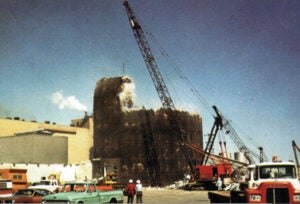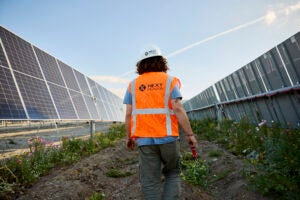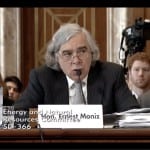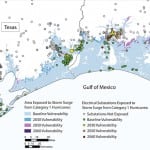In contrast to the bitter partisanship that has paralyzed Congress for the past few years—especially with respect to energy policy—the Obama administration’s first Quadrennial Energy Review (QER) received a mostly warm welcome from House GOP members, who echoed its concerns with the state of the nation’s energy infrastructure during a hearing on June 2.
“Many have asked whether there’s enough common ground between our efforts and the Obama administration to enact meaningful energy legislation,” House Energy and Power Subcommittee Chairman Ed Whitfield (R-Ky.) said at the beginning of the hearing. “I believe that this question was answered with a clear yes when the Department of Energy’s first installment of its Quadrennial Energy Review was released last April.”
The first installment of the QER, released on April 20, summarizes an array of energy infrastructure challenges facing the U.S., from antiquated natural gas pipelines to poor cybersecurity to transmission lines ill-equipped to handle the enormous growth in renewable generation. Energy Secretary Ernest Moniz discussed the QER before the Senate Energy and Natural Resources Committee on April 28, where senators were mostly supportive of its conclusions and recommendations. Chairman Lisa Murkowski (R-Alaska) introduced a suite of bills incorporating many of the proposals on May 8.
Moniz returned to Capitol Hill on June 2 to discuss the QER with House members. He noted that while the QER includes an array of policy recommendations, many of the goals will require substantial investment.
“Periods of significant national prosperity have been frequently accompanied by Federal investments in a range of infrastructures—highways, rural electrification, providing water to open up the West,” he said. “Some of the QER’s recommendations will require similar investments in our energy infrastructures at a critical time for shaping our energy system. These will however, leverage significant private investment and pay big dividends for the country—high-paying jobs, increased energy security, and a cleaner environment.”
Whitfield noted that the House has been working on its own bipartisan energy bill, and that many of the recommendations in the QER overlapped with goals in the bill.
“We need more pipelines and storage facilities and all the other elements of the infrastructure for oil and natural gas. We also need more electric transmission lines and upgrades to the existing infrastructure to ensure that our electricity supply is sufficient, reliable, and secure against outside attacks.”
Moniz noted that the natural gas pipeline system alone could require as much as $270 billion in upgrades and repairs. Still, he welcomed the positive remarks the QER received.
“I look forward to working with you to move these ideas forward, and I really appreciate in the opening remarks the statements about common ground and the opportunities we have to work together,” he said.
—Thomas W. Overton JD is a POWER associate editor (@thomas_overton, @POWERmagazine).










